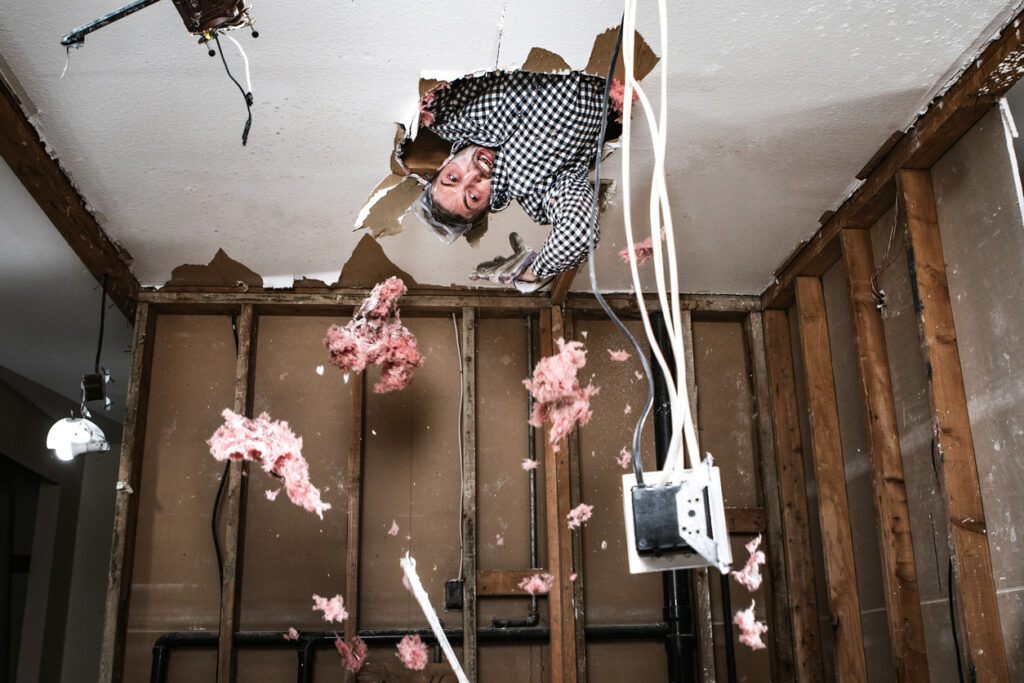When it comes to home improvement projects, finding a reliable contractor can sometimes feel like searching for a needle in a haystack. Florida, known for its beautiful landscapes and vibrant communities, unfortunately, also has a reputation for hosting a significant number of unlicensed or dishonest contractors.
Homeowners seeking to improve their properties can find themselves vulnerable to scams or poor workmanship, making it crucial to know how to differentiate between good, bad, and crooked contractors.
The Landscape of Florida Contractors
Florida’s warm climate and booming real estate market attract countless contractors. While many of these professionals are legitimate and skilled, the industry also contains its share of unscrupulous operators.
The state has often been considered a hotspot for contractor fraud, with reports of everything from shoddy workmanship to complete financial scams. Unlicensed contractors often invade this market, offering attractive prices and promises that lure homeowners into signing contracts without verifying credentials.
The Florida Department of Business and Professional Regulation (DBPR) began decisive actions against unlicensed contractors targeting Floridians through two proactive enforcement operations in Lee and Monroe counties in January and February 2025. Similar actions are taking place across the state.
How to Identify Good, Bad, and Crooked Contractors
Here are some helpful tips for weeding out the bad contractors and finding the best ones.
Good Contractors
Good contractors come with solid reputations. They hold verifiable licenses, carry appropriate insurance, and have received positive reviews from past clients. These professionals are transparent in their dealings, offer written contracts, and communicate effectively. They don’t pressure you into making hasty decisions and are willing to provide references and examples of their previous work.
Bad Contractors
A bad contractor might have a license but lack reliable references or have numerous complaints filed against them. Perhaps they’re unresponsive to calls or fail to deliver on their promises. They may also lack proper insurance, which poses a risk to homeowners. If a contractor is overly eager to receive payment upfront or refuses to provide a written estimate, it’s a major red flag.
Crooked Contractors
Crooked contractors often operate without licenses and prey on unsuspecting homeowners. They may request a large deposit and then vanish, leaving the job incomplete or poorly done. Signs of a crooked contractor include
- Asks for a large upfront payment: Be very cautious of contractors who ask for all or most of the payment before work has begun. A standard down payment is usually around 10–30% to cover initial materials.
- Solicits you directly: Be wary of someone who shows up at your door unexpectedly and offers a low price for repairs, especially after a storm. This is a common scam tactic.
- Uses high-pressure sales tactics: Crooked contractors may use scare tactics or offer a deal that is only “on the table today” to pressure you into signing a contract.
- Insists on cash payments: Demanding payment in cash is a major red flag, as it creates no paper trail. Be cautious if they offer a discount for cash.
- Uses a vague or unsigned contract: Refusing to provide a detailed written contract is a sign of a fraudulent operator. Never sign a contract with blank spaces.
- Has no permanent business address: While some contractors operate remotely, it’s a red flag if you cannot verify a local business address for them.
- Changes company names frequently: Contractors who frequently change company names may be trying to hide a history of lawsuits, poor service, or other complaints.
If a contractor insists on cash payments to avoid “reporting fees,” tread carefully.
What Homeowners Can Do If They Suspect a Crooked Contractor
Facing a dodgy contractor can be frustrating, but there are steps homeowners can take to protect themselves and rectify the situation:
- Document Everything: Keep records of all communications, contracts, payments, and evidence of the work performed. Photos of the project at various stages can also provide critical documentation.
- Research: Check the contractor’s credentials through the Florida Department of Business and Professional Regulation. This agency maintains a database of licensed contractors. Verify their insurance status as well.
- File Complaints: If you’ve encountered misconduct, consider filing a formal complaint with the Florida Department of Business and Professional Regulation. Homeowners can also reach out to the Better Business Bureau (BBB) and local consumer protection agencies.
- Avoid Additional Payments: If the work is unsatisfactory or incomplete, avoid making further payments until the issues are resolved. Depending on the terms of your contract, you may have grounds to hold back payment.
- Get Legal Representation: For significant disputes or if the contractor refuses to resolve the issue, seeking legal counsel may be necessary. At Parrish & Goodman, Attorneys at Law, we understand the personal and business challenges our clients face. Our team can help navigate legal matters related to contractor disputes, offering seasoned guidance to protect your interests.
FAQs About Crooked Contractors
How do I know if a contractor is licensed?
You can verify a contractor’s license status by searching the Florida Department of Business and Professional Regulation’s online database. Always ask for a copy of their license before hiring.
What should I do if my contractor disappeared with my deposit?
Contact the contractor first to inquire about the situation. If you cannot reach them, file a complaint with the relevant authorities and consider seeking legal advice to explore your options for recovering your funds.
Is there a way to avoid hiring a bad contractor?
Research thoroughly by checking online reviews, asking for references, and interviewing multiple contractors. Look for established businesses with good reputations in the community.
Can I take legal action against a contractor for poor workmanship?
Yes, if the contractor fails to adhere to the contract terms or provides unsatisfactory workmanship, you may have a claim for breach of contract. Consult an attorney for personalized guidance tailored to your specific situation.
What should I include in a contract with a contractor?
A contract should include details such as the scope of work, payment terms, timelines, and warranties for the work performed. Ensure that both parties sign the document to avoid disputes.
Florida Business Lawyers Who Help with Bad Contractors
At Parrish & Goodman, Attorneys at Law, we emphasize the importance of informed choices when hiring contractors. Personal and business challenges can arise without warning, and we are here to provide seasoned legal guidance and representation to help navigate them. With two office locations in Naples and Fort Myers, we are also equipped to conduct virtual meetings, making it easier for you to seek legal help from anywhere in Florida.
Don’t let daunting circumstances leave you feeling overwhelmed – contact The Parrish & Goodman Law Firm today for a free consultation and start protecting your rights.




